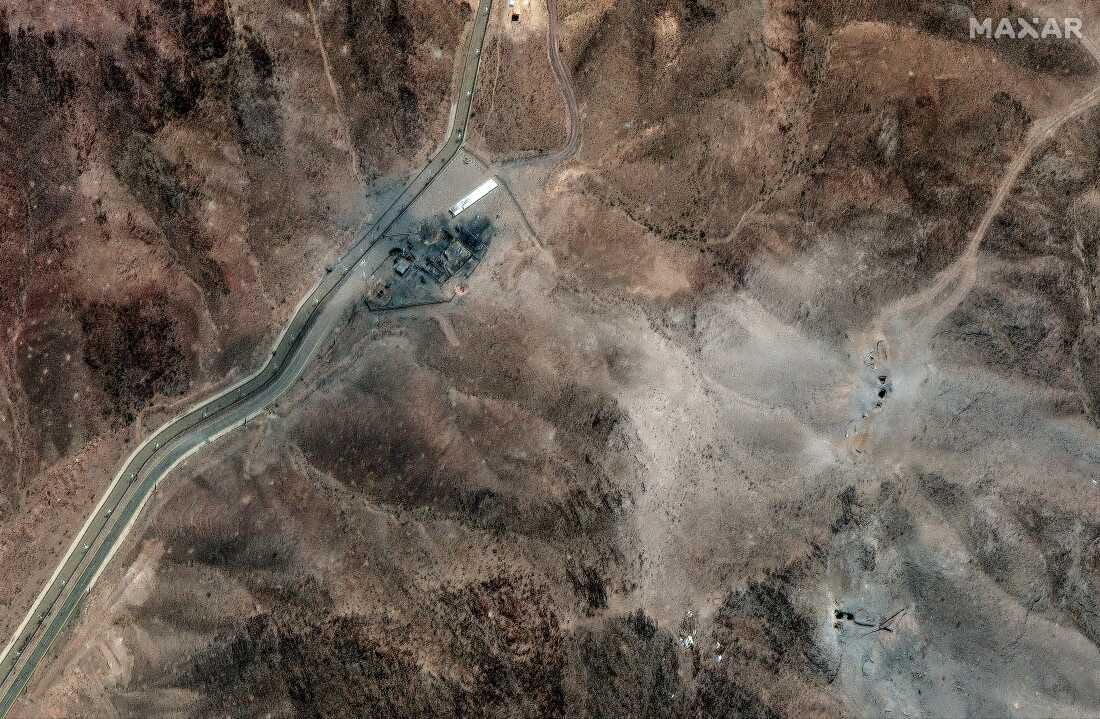Bombs Will Not End Our Iran Nuclear Problem
Precision bombs can't fix what only diplomacy can. U.S. strikes on Iran failed to stop its nuclear program—and may have only hardened its resolve. It’s time to relearn the limits of airpower.

By Jeremi Suri
The U.S. military strike on Iran last weekend was a tactical success. By all accounts, the B-2 and other aircraft that flew long 37-hour trips with massive 30,000-pound bombs carried out their tasks with precision and efficiency. They hit the three Iranian nuclear sites they targeted, and they returned to the United States safely. This was a difficult, unprecedented mission that went according to plan. The pilots and other servicepeople involved deserve praise for a difficult job well done.
But their good work did not solve the strategic problem. As the Defense Intelligence Agency reported on Tuesday, the military strikes barely set back Iran’s nuclear program. Tehran is still only months from developing a nuclear weapon. Any new delay in Iran’s capabilities might reflect Israel’s relentless attacks on the regime, its leadership, and its scientists more than the U.S. strikes.
We are already seeing more confirmations of this assessment, and the White House postponed classified Congressional briefings, probably because it does not like the reported intelligence. Iranian nuclear resilience is what many experts expected in advance. The nuclear sites, particularly the Fordo facility, are dug deep into the ground and designed to withstand even the largest bombs. The United States has never used bombs of this size before, so the effects are difficult to predict. The Iranians also moved their nuclear materials in advance, and they probably built additional secret sites that remain undetected.
Destroying Iranian nuclear sites with some assurance required multiple bombing runs, not just the single large attack on Saturday. It also required on-the-ground assessment and follow-up military action. Even if all of these additional activities were untaken, success in smothering the nuclear project was still uncertain.
Donald Trump stands in a long line of American presidents captivated by what the United States can do from the air. With the most sophisticated stealth aircraft and precision bombs, Washington can bring rapid, focused destruction to almost any point on the globe. Drones allow this work to be done, in other cases, with unmanned vehicles. The risks for American people and territory are almost non-existent. Presidents should be able to use this awesome power to force their way on recalcitrant regimes.
But it has never worked that way. Air power can destroy societies, but it cannot change them. The historical record clearly shows that real regime change, with major reverses in policy, requires long, hard work on the ground. Air attacks often motivate local resistance to the United States, rather than compliance.
Americans repeatedly overestimate what air power can accomplish. For all the millions of tons of ordnance that the United States dropped on Vietnam, it never crushed the supply lines and fighting morale of the communists. For all the shock and awe in Iraq, American bombs and missiles did not destroy the insurgency that continued to maim Americans with roadside explosives and other improvised devices. And now in Iran, the biggest bombs cannot force a large, proud country to abandon a treasured project.
There is good reason to believe that the American failure to wipe out the Iranian program will encourage leaders in Tehran to drive faster to a crude nuclear device. Recent events send a message that having one of those weapons is indeed the only way to deter American and Israeli attacks. North Korea has nuclear weapons, and it manages to terrorize its neighbors without suffering from the foreign bombardment that Iran has endured. Israel also appears emboldened by its nuclear arsenal. Why shouldn’t Iran have these weapons too?
If developed, Iranian nuclear capabilities will encourage other nearby states to build their own. A proliferation spiral is a nightmare that might very well irradiate the entire region. The United States has a very strong interest in preventing this outcome. On that point, President Trump is correct.
The past few days have shown – and coming days will provide more evidence – that military strikes will not end Iran’s nuclear program. Air power, even mighty American air power, cannot do that with any certainty. As has been the case since the United States developed the first atomic bombs in 1945, the management of nuclear dangers requires consistent and committed diplomacy. Countries like Iran will not give up their nuclear capabilities because they are bombed and made to fear for their future. That has the reverse effect. Countries will give up their nuclear capabilities when they are made to feel secure and incentivized to spend their resources elsewhere, especially on domestic development. That is the history of nuclear non-proliferation in Europe, Asia, Latin America, and Africa.
The United States must follow through on this diplomatic history. Washington should offer a struggling Iranian economy what it most needs, foreign capital and resources, in return for pausing its nuclear ambitions. These negotiations are difficult, but they have borne fruit in the past, especially in the agreement that the Obama administration negotiated to halt Iranian nuclear weapons development for fifteen years. Trump tore up that agreement, but wouldn’t fifteen years without a nuclear Iran be better than just a few months? A new diplomatic push in Iran is what we need, with help from our European friends. Bombs will not get us there.
It is time that American leaders learn the very real limits of our military power. Blowing things up rarely produces the political outcomes we desire. Let’s double down on diplomacy for a change.
Also see in:
German, Turkish, Chinese, Spanish
Jeremi Suri holds the Mack Brown Distinguished Chair for Leadership in Global Affairs at the University of Texas at Austin. He is a professor in the University's Department of History and the LBJ School of Public Affairs. Professor Suri is the author and editor of eleven books on politics and foreign policy, most recently: Civil War By Other Means: America’s Long and Unfinished Fight for Democracy. His other books include: The Impossible Presidency: The Rise and Fall of America’s Highest Office; Liberty’s Surest Guardian: American Nation-Building from the Founders to Obama; Henry Kissinger and the American Century; and Power and Protest: Global Revolution and the Rise of Détente. His writings appear in the New York Times, Washington Post, Wall Street Journal, CNN.com, Atlantic, Newsweek, Time, Wired, Foreign Affairs, Foreign Policy, and other media. Professor Suri is a popular public lecturer and comments frequently on radio and television news. His writing and teaching have received numerous prizes, including the President’s Associates Teaching Excellence Award from the University of Texas and the Pro Bene Meritis Award for Contributions to the Liberal Arts. Professor Suri hosts a weekly podcast, “This is Democracy.”





